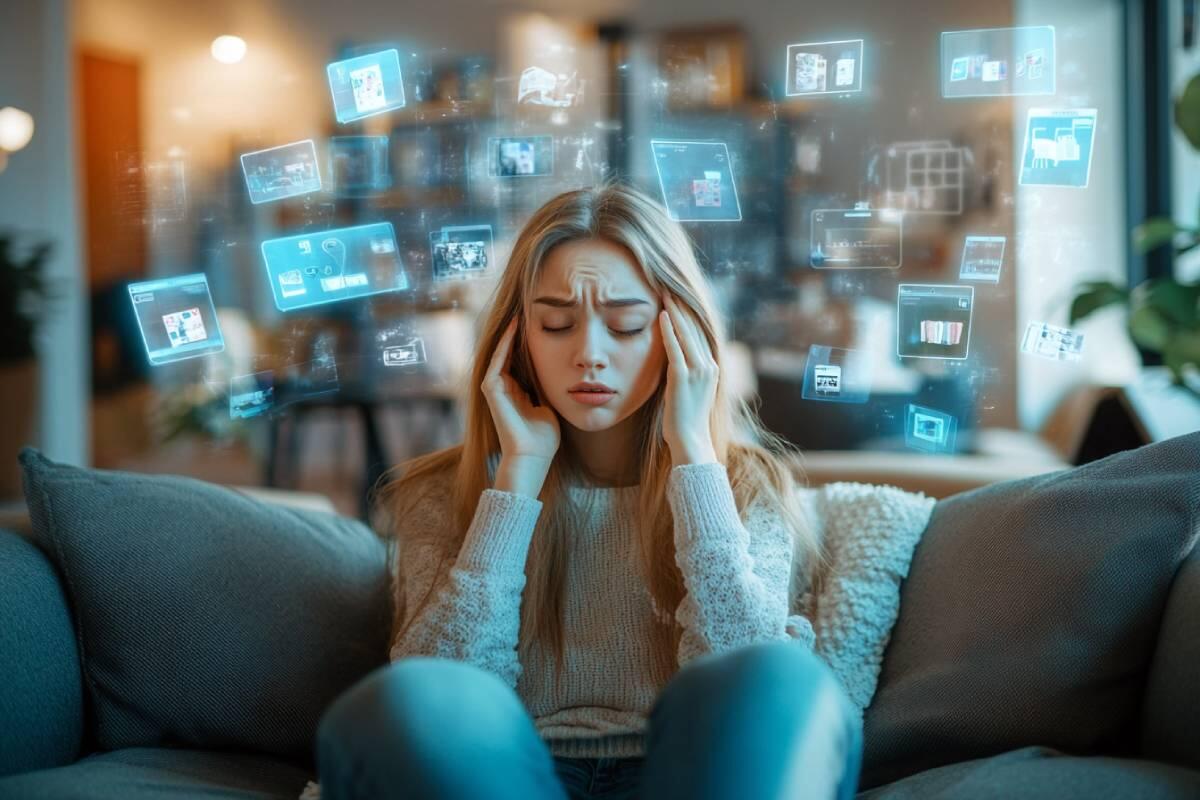Anxiety and E-commerce Apps: How Digital Shopping Affects Your Emotional Health
E-commerce apps have become part of the daily routine for millions of people. With just a few taps, you can explore products, compare prices, and have everything delivered to your door. Constant notifications, coupons, and flash sales make the shopping experience even more enticing.
However, this easy access to consumption also has emotional consequences. Frequent exposure to promotions and buying triggers can lead to compulsive behaviors and impact mental well-being. In this article, we’ll explore how shopping apps influence emotional health and how to build a more balanced relationship with digital consumption.
Why Can E-commerce Apps Trigger Anxiety?
Constant stimuli and a sense of urgency
E-commerce apps are designed to keep users engaged and encourage quick purchases. Notifications like “only a few left,” countdown timers, and limited-time offers activate a sense of urgency in the brain. That fear of “missing out” creates tension and impulsivity.
As a result, users often feel pressured to act quickly, which increases anxiety. Instead of making mindful decisions, many people buy impulsively to ease the stress of potentially losing a deal — even when they don’t truly need the item.
Social comparison and validation through consumption
Social influence also plays a key role. Product reviews, trending items, and personalized recommendations lead users to compare themselves with others. The algorithm reinforces the desire to fit in or be admired through what they buy.
This can result in purchases driven by insecurity or the need for validation. Rather than fulfilling a real need, shopping becomes a coping mechanism for negative emotions such as sadness, loneliness, or low self-esteem.
Signs That Your Emotional Health May Be Affected
Compulsive buying behavior
A major red flag is the feeling of losing control over your purchases. People often feel a temporary sense of relief after buying, followed by guilt, regret, or questioning whether the purchase was necessary at all.
It’s also common to open shopping apps with no specific goal — just out of impulse or habit. Even without a need, simply browsing can spark anxiety about missing out on a “great deal.”
Anxiety and irritability
Frustration over missing a promotion, obsessively checking for coupons, or emotional distress when trying to resist a purchase can lead to constant mental tension. Some people become irritable, restless, or emotionally unstable when they can’t buy something right away.
When e-commerce becomes an emotional escape — a way to avoid stress, boredom, or personal problems — it’s a sign the app is being misused. This behavior can create a repetitive and hard-to-break cycle.
Strategies for Healthier Use
Limit notifications and screen time
The first step to regaining control is to reduce external triggers. Disable promotional notifications and remove app shortcuts from your home screen to avoid impulsive usage. Try not to open the app during moments of boredom or stress.
You can also use built-in screen time tools or focus apps to block access to shopping apps during the day. These small barriers make it easier to adopt more conscious and intentional habits.
Plan your purchases
Create a list of what you truly need before opening the app. This helps you stay focused and avoid being distracted by unnecessary items or “too good to pass up” promotions.
Set a monthly spending limit for online shopping — and stick to it. Even if a tempting offer pops up, honoring your budget supports both your emotional and financial well-being.
Practice emotional self-care
When shopping becomes a way to manage emotions, it’s time to seek other healthy outlets. Activities like meditation, physical exercise, reading, or creative hobbies can bring joy and relief without the consequences of overspending.
Ask yourself honestly: “Am I buying this because I need it or because I want to feel better?” Developing this awareness is key to preserving your mental health and building a more balanced relationship with consumption.
When to Seek Professional Help?
Compulsive behavior and financial harm
If shopping begins to impact your budget, cause debt, or interfere with important financial goals, it’s time to seek professional support. Psychotherapy can help uncover emotional triggers and develop behavior regulation techniques.
Compulsive shopping may be linked to underlying conditions like generalized anxiety or depression. In such cases, psychological treatment is essential to prevent the issue from escalating.
Impact on relationships and personal well-being
Family conflict over spending, social withdrawal, or a sense of emotional instability may indicate that your shopping habits are affecting other areas of your life. Professional support can help you restore balance and take back control.
At Clinic Consultation, we have psychologists who specialize in emotional behavior and consumption. With the right guidance, it’s possible to regain control and foster a healthier relationship with money and emotions.
Conclusion
E-commerce apps offer convenience — but when used without awareness, they can become sources of anxiety and stress. Recognizing red flags, reducing digital stimuli, and setting boundaries are key to protecting your emotional health.
How we consume reflects how we manage our emotions. More than just hunting for deals, it’s essential to cultivate self-care, self-awareness, and respect for your personal limits — financially and emotionally.
Do you feel that shopping apps are affecting your emotional health?
Schedule a session with one of the mental health specialists at Clinic Consultation and discover how therapy can help you build a healthier relationship with consumption and with your emotions.
https://www.clinicconsultation.in/
